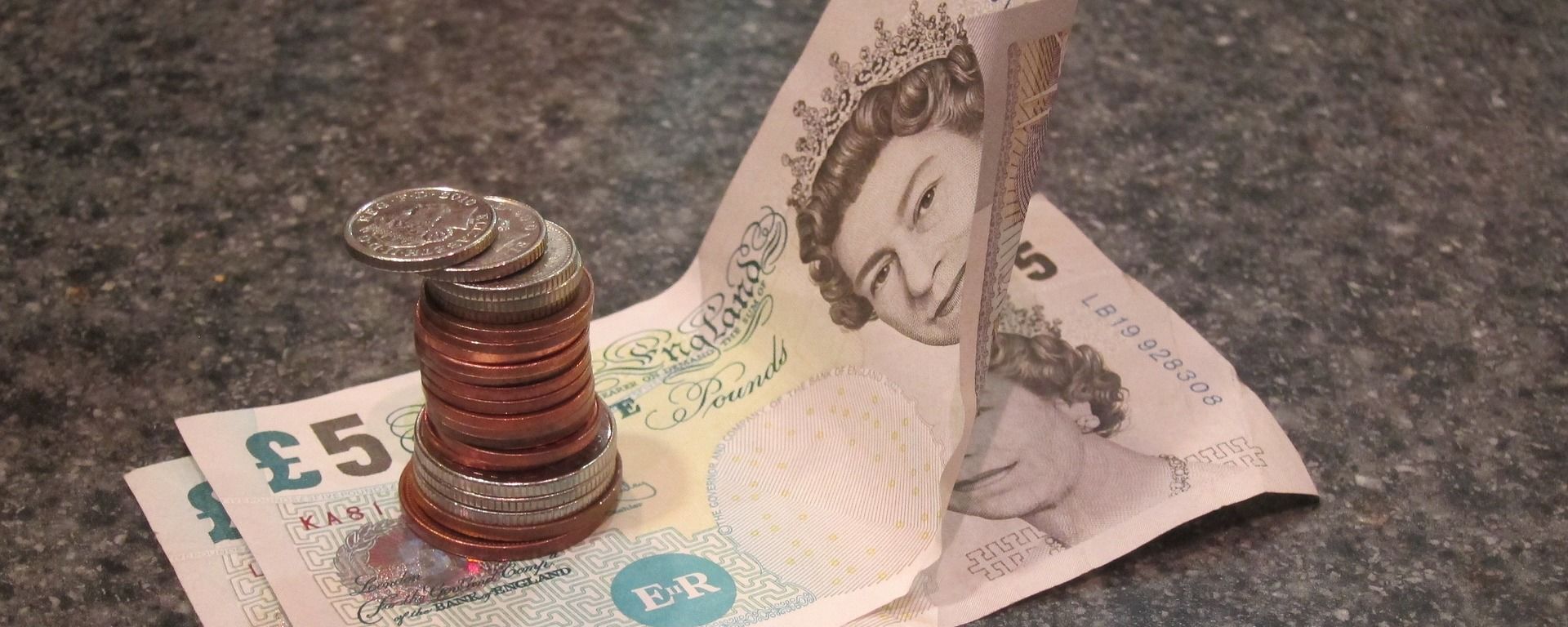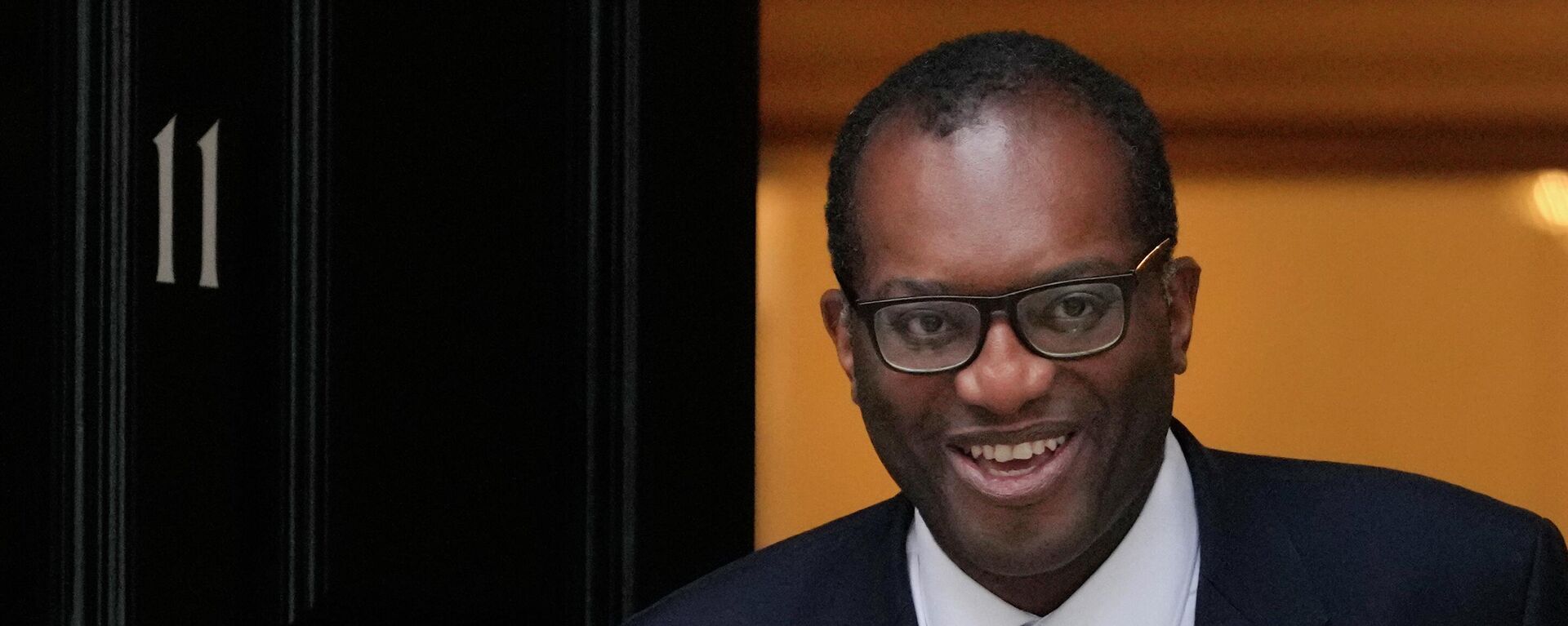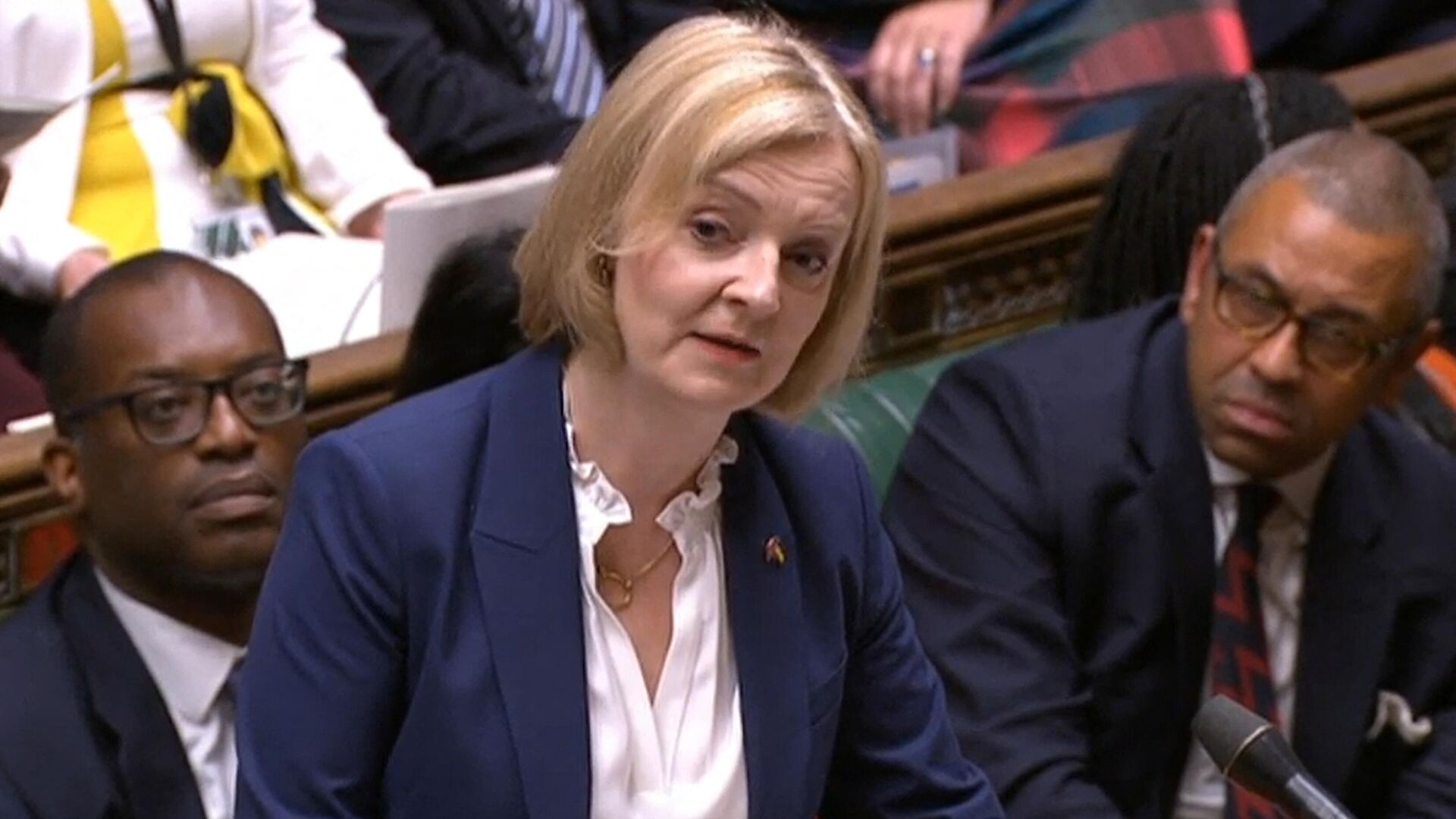https://sputnikglobe.com/20220928/truss-kwarteng-reportedly-had-friction-over-government-response-to-pound-crisis--1101295851.html
Truss, Kwarteng Reportedly Had ‘Friction' Over Government Response to Pound Crisis
Truss, Kwarteng Reportedly Had ‘Friction' Over Government Response to Pound Crisis
Sputnik International
Earlier this week, the UK pound plunged to all-time low after Chancellor of the Exchequer Kwasi Kwarteng announced the country’s new mini-budget, unveiling... 28.09.2022, Sputnik International
2022-09-28T06:02+0000
2022-09-28T06:02+0000
2023-05-28T15:21+0000
world
liz truss
kwasi kwarteng
pound
government
united kingdom (uk)
https://cdn1.img.sputnikglobe.com/img/07e6/09/07/1100504706_0:0:3309:1862_1920x0_80_0_0_b954e565b5c70926844541c3ab496712.jpg
British Prime Minister Liz Truss and Chancellor Kwasi Kwarteng had a row over how to respond to the unprecedented fall in the UK pound, The Guardian has cited unnamed Whitehall sources as saying.According to the insiders, there was “an argument” between Truss and Kwarteng during the Monday gathering, with the PM reportedly resisting the Chancellor’s suggestion that a Treasury statement was needed to calm down the markets.Downing Street insisted that it was “nonsense” that the pair had been at odds during the meeting, arguing that Truss meets Kwarteng every day and there was no argument between them.One of the sources, however, contradicted the claims, admitting that there was “friction” at the Monday encounter.This comes after the UK pound plummeted to its lowest level against the US dollar since the British currency went decimal in 1971. In early Asia-Pacific trading earlier on Monday, the sterling fell by more than 4% to $1.0327 before it regained some ground to about $1.05, extending last week’s 3.61% drop.UK Chancellor Rolls Out Mini-Budget The developments followed Kwarteng unveiling his mini-budget last Friday, aimed at resolving the UK’s cost of living crisis and boosting the economic growth. The chancellor vowed to raise gross domestic product (GDP) growth to 2.5% and proposed more than £411 billion ($446 billion) in extra borrowing over five years.The package of measures stipulate spending £60 billion ($65 billion) in the six months following October 2022 to reduce energy bills for UK households and businesses. Under the mini-budget, the basic income tax rate will be slashed to 19% from 20%, while a planned corporate tax hike to 25% will be reversed, with businesses continuing to pay a rate of 19%.The 45% income tax rate paid by those earning over £150,000 ($158,000) per year will be reduced to 40%, while the cap on bankers’ bonuses will be abolished, and alcohol duties will be frozen. Kwarteng also announced a series of supply-side measures, and a reform of planning rules with the creation of low-tax investment zones on top of this.The chancellor's announcement of the mini-budget was followed by a turmoil in UK financial markets later last Friday, with sterling soaring more than three percent against the US dollar to $1.085 - a level last seen 37 years ago.In the House of Commons, only a few Conservative MPs gave Kwarteng their full support, while some Tory members voiced alarm over aspects of the new economic plan.The Telegraph has, meanwhile, reported that Tory backbenchers are ready to rebel against Truss and vote against the PM’s tax cuts if the pound continues to plummet. The newspaper cited an unnamed Tory MP as saying that “my biggest anxiety is that I’m going to wake up on Monday and it’s going to be Black Monday.” The MP apparently referred to the stock market collapse on October 19, 1987 when the Dow Jones Industrial Average lost almost 22% in a single day, triggering a global stock market decline.
https://sputnikglobe.com/20220926/why-british-pound-will-remain-weak-over-short-term--even-weaker-in-long-run-1101247304.html
https://sputnikglobe.com/20220923/british-chancellor-unveils-mini-budget-to-tackle-runaway-inflation-1101117219.html
united kingdom (uk)
Sputnik International
feedback@sputniknews.com
+74956456601
MIA „Rossiya Segodnya“
2022
Oleg Burunov
https://cdn1.img.sputnikglobe.com/img/07e4/09/0b/1080424846_0:0:2048:2048_100x100_80_0_0_3d7b461f8a98586fa3fe739930816aea.jpg
Oleg Burunov
https://cdn1.img.sputnikglobe.com/img/07e4/09/0b/1080424846_0:0:2048:2048_100x100_80_0_0_3d7b461f8a98586fa3fe739930816aea.jpg
News
en_EN
Sputnik International
feedback@sputniknews.com
+74956456601
MIA „Rossiya Segodnya“
Sputnik International
feedback@sputniknews.com
+74956456601
MIA „Rossiya Segodnya“
Oleg Burunov
https://cdn1.img.sputnikglobe.com/img/07e4/09/0b/1080424846_0:0:2048:2048_100x100_80_0_0_3d7b461f8a98586fa3fe739930816aea.jpg
liz truss, kwasi kwarteng, pound, government, united kingdom (uk)
liz truss, kwasi kwarteng, pound, government, united kingdom (uk)
Truss, Kwarteng Reportedly Had ‘Friction' Over Government Response to Pound Crisis
06:02 GMT 28.09.2022 (Updated: 15:21 GMT 28.05.2023) Earlier this week, the UK pound plunged to all-time low after Chancellor of the Exchequer Kwasi Kwarteng announced the country’s new mini-budget, unveiling massive tax cuts funded by huge increases in borrowing, something that aims to help No 10 tackle the cost of living crisis.
British Prime Minister Liz Truss and
Chancellor Kwasi Kwarteng had a row over how to respond to the unprecedented fall in the UK pound, The Guardian has cited unnamed Whitehall sources as saying.
The sources claimed that the spat emerged as the two met in No 10 on Monday to hammer out the government’s response to the markets’ volatile reaction to the emergency tax-cutting mini-budget announced by Kwarteng last week.
According to the insiders, there was “an argument” between Truss and Kwarteng during the Monday gathering, with the PM reportedly resisting the Chancellor’s suggestion that a Treasury statement was needed to calm down the markets.

26 September 2022, 18:03 GMT
Downing Street insisted that it was “nonsense” that the pair had been at odds during the meeting, arguing that Truss meets Kwarteng every day and there was no argument between them.
One of the sources, however, contradicted the claims, admitting that there was “friction” at the Monday encounter.
This comes after the UK pound plummeted to its lowest level against the US dollar since the British currency went decimal in 1971. In early Asia-Pacific trading earlier on Monday, the sterling fell by more than 4% to $1.0327 before it regained some ground to about $1.05, extending last week’s 3.61% drop.
UK Chancellor Rolls Out Mini-Budget
The developments followed Kwarteng unveiling his mini-budget last Friday, aimed at resolving
the UK’s cost of living crisis and boosting the economic growth. The chancellor vowed to raise gross domestic product (GDP) growth to 2.5% and proposed more than £411 billion ($446 billion) in extra borrowing over five years.
The package of measures stipulate spending £60 billion ($65 billion) in the six months following October 2022 to reduce energy bills for UK households and businesses. Under the mini-budget, the basic income tax rate will be slashed to 19% from 20%, while a planned corporate tax hike to 25% will be reversed, with businesses continuing to pay a rate of 19%.

23 September 2022, 10:37 GMT
The 45% income tax rate paid by those earning over £150,000 ($158,000) per year will be reduced to 40%, while the cap on bankers’ bonuses will be abolished, and alcohol duties will be frozen. Kwarteng also announced a series of supply-side measures, and a reform of planning rules with the creation of low-tax investment zones on top of this.
The chancellor's announcement of the mini-budget was followed by a turmoil in UK financial markets later last Friday, with sterling soaring more than three percent against the US dollar to $1.085 - a level last seen 37 years ago.
Labor Shadow Chancellor Rachel Reeves was quick to describe the mini-budget as a “plan to reward the already wealthy”, arguing that Truss and Kwarteng “are like two desperate gamblers in a casino chasing a losing run.”
In the House of Commons, only a few Conservative MPs gave Kwarteng their full support, while some Tory members voiced alarm over aspects of the new economic plan.
They included Julian Smith, a former Tory chief whip, who claimed that “the huge tax cut for the very rich at a time of national crisis and real fear and anxiety amongst low-income workers and citizens is wrong.”
The Telegraph has, meanwhile, reported that Tory backbenchers are ready to rebel against Truss and vote against the PM’s tax cuts if the pound continues to plummet. The newspaper cited an unnamed Tory MP as saying that “my biggest anxiety is that I’m going to wake up on Monday and it’s going to be Black Monday.” The MP apparently referred to the stock market collapse on October 19, 1987 when the Dow Jones Industrial Average lost almost 22% in a single day, triggering a global stock market decline.





